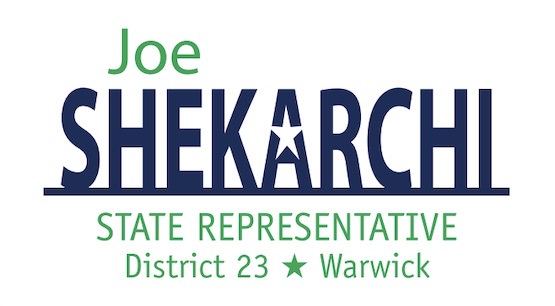Speaker K. Joseph Shekarchi joined Senator Jack Reed, along with Brenda Clement, Director of HousingWorksRI, and Jennifer L. Wood, Executive Director of the Center for Justice, to announce additional federal housing assistance for Rhode Islanders.
Since December, Senator Reed has helped direct over $425 million in federal funding to Rhode Island for rental assistance, foreclosure prevention and housing counseling, and utility assistance.
“There is no one who has been a stronger advocate for housing in Rhode Island than Senator Reed. This funding will help tenants, landlords and homeowners alike,” said Speaker Shekarchi. “For years, housing advocates have been sounding the alarm that Rhode Island is facing a housing crisis. The COVID-19 pandemic has exacerbated that crisis, with COVID hot spots in our state correlating directly to areas where people live in close proximity to each other. We must act now. This funding is a critical resource that will help Rhode Islanders with some of our most immediate, pandemic-related housing crises, and I will continue to do my part at the State House. I pledge that as long as I am Speaker, I will continue to keep housing issues at the forefront of our agenda.”
On December 21, 2020, Congress passed the $2.3 trillion Consolidated Appropriations Act of 2021. Senator Reed helped include a provision in that law directing $200 million to Rhode Island for rental assistance. RIHousing is launching a program, RentReliefRI, to put this money to work helping tenants and landlords who have been hit hardest by the COVID-19 pandemic. It is designed to help eligible state residents who are having trouble covering their rent or housing-based utilities.
Speaker Shekarchi has pledged to make housing his top priority, and earlier this month announced a comprehensive package of legislation aimed at reducing many barriers to affordable housing in Rhode Island.
One bill, championed by House Labor Committee Chairwoman Anastasia Williams, has already been passed by the House and will prohibit housing discrimination against those who receive government assistance to pay their rent. Over 9,300 households in Rhode Island rely on Housing Choice Vouchers (HVC) to afford housing. A 2019 study by Southcoast Fair Housing found that although HCV recipients can afford more than one-third of listed apartments in Rhode Island, they are ultimately rejected from 93 percent.
Additional housing legislation includes:
- Sponsored by Speaker Shekarchi, a bill (2021-H 5951) that would create within the Executive Office of Commerce a deputy secretary of commerce and housing, who will oversee housing initiatives and develop a housing plan that will include affordable housing, strong community building and neighborhood revitalization efforts.
- A bill (2021-H 5950) also sponsored by Speaker Shekarchi, to create a legislative commission to study all aspects of land use, preservation, development, production, regulation, zoning, housing and the environment. The commission would make recommendations to enable the state to ensure and promote land use that allows for sustainable and equitable economic growth in support of efforts to achieve the state’s affordable housing goals.
- Legislation (2021-H 5257) sponsored by House Labor Committee Chairwoman Anastasia P. Williams (D-Dist. 9, Providence), which is on the calendar for a vote by the House tomorrow, to prohibit housing discrimination against those who receive government assistance to pay their rent. A 2019 study by Southcoast Fair Housing found that although Housing Choice Voucher (HCV) recipients can afford more than one-third of listed apartments in Rhode Island, they are ultimately rejected from 93 percent. Over 9,300 households in Rhode Island rely on HCV to afford housing.
- A bill (2021-H 5953) introduced by Rep. June S. Speakman (D-Dist. 68, Warren, Bristol) creating a special legislative commission to study the Rhode Island Low and Moderate Income Housing Act. A similar commission led by former Rep. Shelby Maldonado was created in 2016, and made numerous recommendations, one of which was to continue studying ways to meet the state’s affordable housing challenges.
- Legislation (2021-H 5954) introduced by House Floor Manager John G. Edwards (D-Dist. 70, Tiverton, Portsmouth) to extend for three years a tax exemption he originally sponsored to encourage more affordable housing development. The bill, which allows a tax exemption for properties under development until they are occupied, is set to expire Dec. 31.
Legislation (2021-H 5632) sponsored by House Deputy Majority Whip Mia A. Ackerman (D-Dist. 45, Cumberland, Lincoln) will require towns and cities to allow tiny homes to be used as accessory dwelling units and to be counted as affordable housing.
- Legislation (2021-H 5568) introduced by House Deputy Speaker Charlene M. Lima (D-Dist. 14, Cranston, Providence) to more easily enable local planning boards to establish a quorum for votes to help prevent delays in development matters before them.
Last month, the House changed its rules to add housing to the purview of its newly renamed Municipal Government and Housing Committee to help sharpen the chamber’s focus on this important issue.
|
